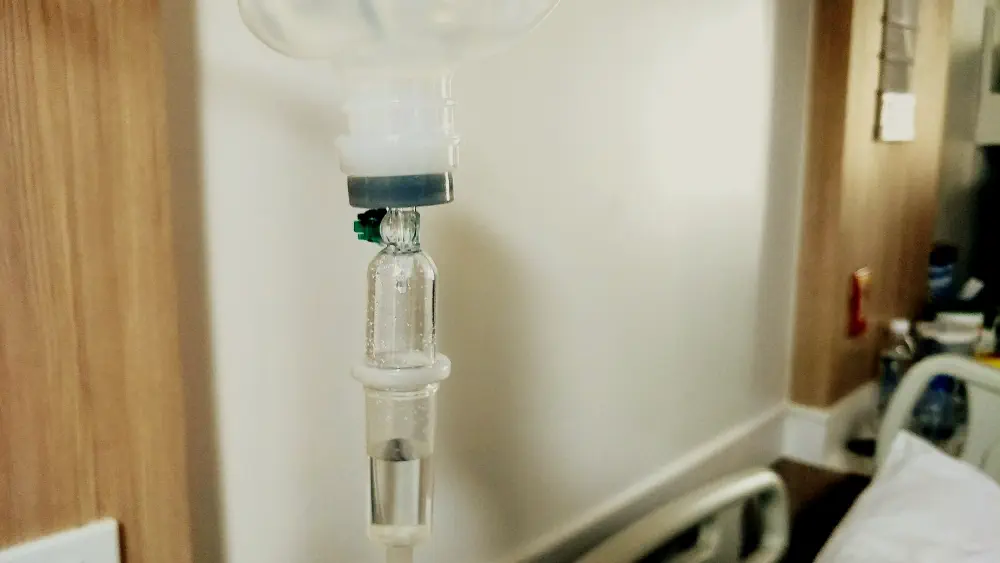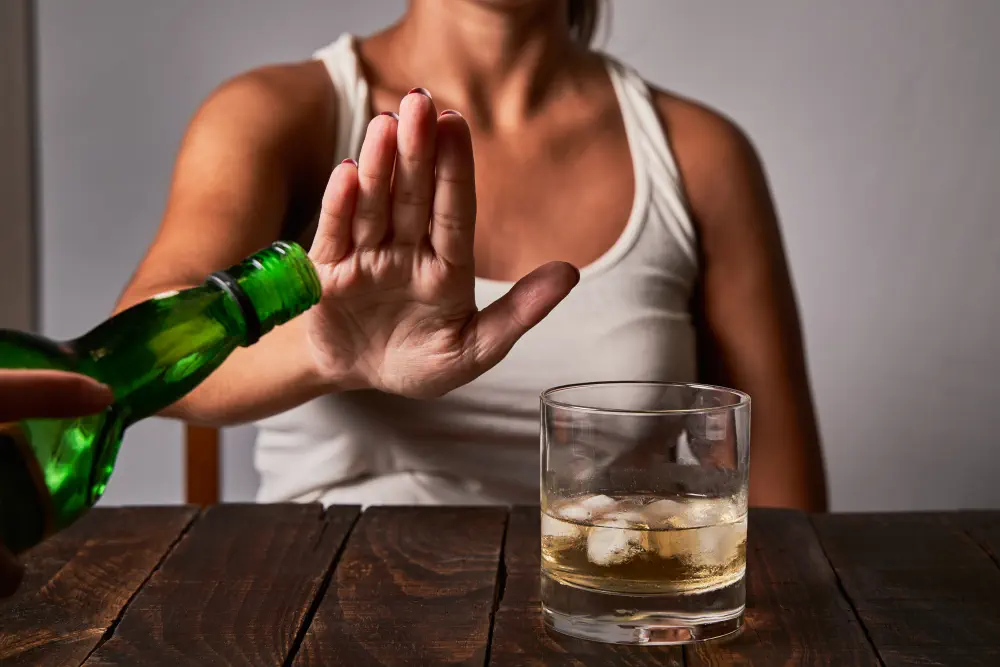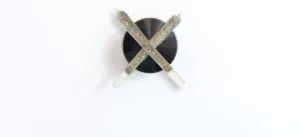We offer medical detox and multiple addiction treatment options in our
luxury treatment centres in Port Hope, Cobourg, and Ottawa.
How to Detox From Alcohol Safely [Step-by-Step Guide]
Alcohol detoxification is a potentially dangerous process that often requires professional help to see through. The goal of detox is to get all traces of alcohol out of the individual’s system. However, a person who has become physically dependent on alcohol may experience severe and even life-threatening withdrawal symptoms. So, it’s crucial to have a plan to avoid complications that may arise during the process. CCFA explains how to detox from alcohol with a step-by-step approach to help you or a loved one overcome alcohol dependence completely.
Key Takeaways
- Alcohol detox helps to rid the body of all traces of alcohol and its metabolites
- Detox is the first step toward alcohol addiction recovery
- Detox is a challenging and potentially dangerous process that requires medical supervision
- Alcohol detox at home is possible, but you should speak to a medical professional to ensure it’s safe for you
- Medical detox helps to prevent relapse and other complications that may follow the process
What is an Alcohol Detox Exactly?

Alcohol detox is the process of removing alcohol from the body so it can adjust to functioning without it. Detox is usually the first step in alcohol addiction treatment and helps you to get through the withdrawal symptoms that accompany alcohol use cessation. It allows your body to get rid of alcohol and the byproducts of its metabolism. This alcohol cleanse also aids the transition from alcohol abuse and addiction to recovery and sobriety.
Depending on the severity of your alcohol use and the length of time for which you’ve been drinking, unsupervised detox can be dangerous. Alcohol is addictive and it's considered one of the world’s most addictive drugs, and when a person has been drinking for a long time, they develop tolerance to alcohol until their brain gets used to functioning with alcohol. Abruptly stopping or even reducing alcohol in this situation can trigger mild to life-threatening withdrawal symptoms.
It is necessary to have medically supervised detox in cases of severe addiction. In this case, medical professionals monitor the patient to ensure complications do not arise or take steps to ensure safety if they do. The Canadian Centre for Addictions offers medical alcohol detox programs in a luxury and serene facility to help you or a loved one recover from alcohol abuse and addiction.
The Symptoms of Detoxing From Alcohol
The symptoms of detoxing from alcohol can range from mild to severe, depending on the severity of your alcohol abuse.
Alcohol withdrawal symptoms include:
● Anxiety
● Mood swings
● Headaches
● Fevers
● Insomnia
● Nausea
● Vomiting
● Increased heart rate
● Blood pressure elevation
● Heart palpitations
● Poor appetite
● Liver dysfunction
● Kidney failure
● Gastrointestinal diseases
● Alcohol hallucinosis
● Seizures
● Delirium tremens
● Coma
● Death
Delirium Tremens
Delirium Tremens is a severe form of alcohol withdrawal that occurs in some individuals detoxing from severe alcohol dependence. It causes life-threatening changes to vital body functions, including respiration, blood pressure, heart rate, and temperature. Delirium tremens is also characterized by confusion, agitation, seizures, and hallucinations . It is crucial to seek help for a loved one immediately if you or a loved one is displaying any symptoms of delirium tremens.
Alcohol Hallucinosis
Alcohol hallucinosis is a rare and less severe alcohol withdrawal symptom characterized by visual, auditory, or tactile hallucinations. The hallucinations caused by alcohol detox are often frightening and can lead to anxiety, agitation, and poor decision-making.
Seizures
Alcohol withdrawal seizures can be severe and potentially life-threatening. The risk of seizures is highest within 48 hours after the last alcohol use. During a seizure, the person may experience twitching, convulsions, confusion, loss of consciousness, and possibly loss of bowel or bladder control. It’s crucial to call for medical help immediately if a person is experiencing a seizure.
How Long Does It Take to Detox From Alcohol?

How long it takes to detox from alcohol depends on your unique circumstances, but it generally takes three to seven days for the body to clear out alcohol. How long you’ve been drinking and the severity of your drinking will impact the duration of detox.
Individuals with a damaged liver due to excessive consumption or other health conditions may also take longer to process alcohol from their system. However, the liver has a unique ability to regenerate itself even after extensive damage. So, getting medical detox and treatment can help your damaged liver recover. In some cases, you may begin to see signs your liver is healing within a short period after detox. For chronic or heavy alcohol users, detox may last up to two weeks or longer.
The alcohol withdrawal timeline generally progresses in this manner:
Six to 12 hours
You may experience minor symptoms like cravings, headaches, nausea, vomiting, and mild tremors.
12 to 24 hours
Symptoms become more intense, and you may observe mood swings, dehydration, and brain fog.
24 to 48 hours
Symptoms peak around this time and may include agitation, seizures, tremors, and delirium tremens.
48 to 72 hours
Symptoms should start to subside, though you may still feel restless, anxious, or depressed.
Other factors that may impact the length of detox include:
● The presence of co-occurring or underlying health conditions
● Age
● Gender
● Body weight
● Family medical history
How to Safely Detox From Alcohol At Home
While it’s possible to detox from alcohol at home, it is generally not recommended. Alcohol detox can be a challenging and dangerous process, so it’s best to have medical supervision during this time. If you plan to detox from alcohol at home, it’s best to speak with your healthcare provider to determine whether a home detox is appropriate for you.
Detoxing from alcohol at home may be possible for people who have not been drinking for long or those who do not experience severe withdrawal symptoms. It’s still necessary to have a support system of friends or relatives, even if you opt for a home detox. Here are tips on detoxing from alcohol at home.
Speak with a Professional
It’s essential to receive clearance from a medical professional before you start a home detox or plan how to stop drinking alcohol safely. Your doctor or healthcare provider will assess you to determine whether you’re suitable for a home detox and offer insights into managing possible symptoms.
Inform Your Support System
Let the people around you know what you’re doing. Your family and friends will provide emotional support, keep you motivated, and call for help in an emergency.
Reduce Your Alcohol Intake Gradually
Quitting alcohol “cold turkey” when you’re detoxing may trigger unpleasant withdrawal symptoms. Consider reducing how much you drink over a few days or weeks before you stop drinking altogether. You could start by consuming 10% less than usual for a few days to see how you feel. Cut down by another 10% after a few days until you stop entirely. If you experience withdrawal symptoms, it means you’re cutting down too fast and need to return to your most recent safe level. Keep reducing how much you drink until you no longer need to drink anymore.
Keep Yourself Hydrated
Alcohol detox can leave you severely dehydrated, so it’s essential to drink lots of water and hydrating fluids.
Eat Healthy
Eating healthy meals and avoiding processed or junk foods can speed up recovery and make withdrawal symptoms more manageable. High-carbohydrate foods can reduce your alcohol cravings, while fruits like bananas will improve your immune system and help replenish lost electrolytes.
Get Regular Exercise
Exercise triggers the release of endorphins, hormones that reduce stress and improve mood. It also reduces your alcohol cravings and enhances the quality of your sleep.
Keep a Calm Environment
Keeping a calm environment can help reduce stress and anxiety, making withdrawal symptoms more manageable. Turn off electronic devices, use soft lights, play soothing music, and practice relaxation techniques. You also want to avoid your drinking buddies or others who may remind you of your past with alcohol.
Join a Support Group
Being part of an in-person or online support group while detoxing at home can aid the process. Support groups provide a sense of community and a safe space to share your experiences. Talking to people going through similar paths can encourage you and make the process less isolating. Hearing about the experiences of others can also give you hope and perspective. Support groups like Alcoholics Anonymous and SMART Recovery are always ready to help you through the process.
Seek Help If Necessary
It’s important to have a list with contact information of people who may know how to help an alcoholic. Your list should include your doctor, a nearby hospital, the police, and people who can swiftly help you if there’s an emergency.
What Are the Complications of Detoxing From Alcohol At Home?
While home alcohol detox may be a viable option, it carries some risks that could lead to complications if left unaddressed. Some of these complications include:
Escalation of Symptoms
Mild withdrawal symptoms can suddenly become severe during a home detox. You may become severely dehydrated, have a seizure, or lose consciousness. Medically supervised detox ensures you’re monitored to prevent complications from placing you in immediate danger.
Relapse
The risk of relapse is higher in a home detox. During the detox process, a person will often experience intense cravings they may find impossible to resist. Detoxing in a clinical setting will make these cravings easier to manage.
Delirium Tremens
About 5% to 10% of people with alcohol dependence will experience delirium tremens. The risk may be higher for a person detoxing at home, and this can lead to death if not treated immediately. Home detox may make it more challenging to get needed emergency help if a person experiences delirium tremens.
Mental Health Struggles
The stress of dealing with detox can trigger or exacerbate mental health challenges. People with depression, anxiety, or PTSD may observe their symptoms becoming worse during detox. It’s vital to get medical help if you’re experiencing mental health challenges during detox.
Vitamin Depletion
Withdrawal symptoms can lead to malnourishment and loss of vitamins. A person undergoing home detox may be more inclined towards eating unhealthy meals, which can lead to severe vitamin depletion.
When to Consider Medical Alcohol Detox

You may need to consider medical alcohol detox if you’ve tried to detox at home unsuccessfully. People with mental health issues or those whose home environments may not be suited to alcohol-free living may need to detox in a clinical setting. Also, you may need medical detox if you don’t have a reliable home support system. Relapses are more likely with home detox, and medical detox is better for relapse prevention, especially in cases of severe addiction.
Conclusion
Alcohol detox can be a challenging process, but it’s worth it to get help and start the journey to recovery. Detoxification in alcoholism not only improves your mental and physical health, it also enhances your overall sense of well-being and can lead to a healthier and more fulfilling life. It’s worth reiterating that detox is only the first step in overcoming alcohol use disorder. It would be best if you continued treatment to maintain your sobriety and prevent relapse.
The Canadian Centre for Addictions offers medical detox programs in an environment that inspires lasting change. We also offer alcohol addiction treatment options with personalized recovery plans to help you or a loved one get their lives back on track. Call 1-855-499-9446 today, and someone will speak to you about our services.
FAQ
What medication has the same effect as alcohol?
Some medications like benzodiazepines (valium, xanax), barbiturates, and muscle relaxants have been shown to have similar effects as low doses of alcohol. The use of these drugs for recreational purposes is prohibited, and they should only be used when prescribed by a doctor.
What can I drink to flush my liver?
The best way to flush your liver is to stay hydrated by drinking lots of water. Other drinks that may be useful in ridding your liver of toxins include grapefruit juice, lemon water, ginger drink, and herbal teas like dandelion, green tea, milk thistle, and chamomile tea.
What is a relaxing drink to replace alcohol?
Relaxing drinks you can take to replace alcohol include kombucha and non-alcoholic beers or spirits. You can also try Kava, a beverage made from the roots of the kava plant that has been used for centuries as a social beverage and for its calming effects.
How can I relax my mind without alcohol?
There are several ways to relax your mind without alcohol. Meditation and mindfulness practices are typically very effective. Deep breathing and yoga are examples of activities to keep your mind calm. Listening to relaxing music, spending time in nature, and getting enough sleep also helps with mental relaxation. Also, engaging in enjoyable activities like reading, journaling, taking a leisurely walk, or spending time with friends and loved ones can help you relax your mind without alcohol.
Do your hormones change when you stop drinking?
Yes, when you stop drinking, your hormones do change. Alcohol affects the levels of several hormones, including cortisol, estrogen, and testosterone. When you stop drinking, these hormones will return to more normal levels. It can take some time for these changes to occur, and there may be symptoms like mood swings, anxiety, and insomnia.
What is the best way to detox from alcohol?
The best way to detox from alcohol is under the supervision of a medical professional. Medical detox programs provide support and monitoring as the body goes through withdrawal. Depending on the severity of alcohol use, inpatient or outpatient programs may be recommended. It’s also crucial to have a plan for treatment and relapse-prevention after detox is complete.

![How to Detox From Alcohol Safely [Step-by-Step Guide]](https://canadiancentreforaddictions.org/wp-content/uploads/2024/02/doctor-examines-the-patient-s-pulse-with-stethosco-2023-11-27-05-06-16-utc.webp)




